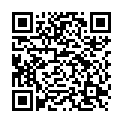|
|
|
| Module code: KIB-UXE |
|
|
2V+2U (4 hours per week) |
|
5 |
| Semester: 4 |
| Mandatory course: no |
Language of instruction:
German |
Assessment:
Project with presentation
[updated 30.06.2024]
|
KIB-UXE (P221-0204) Computer Science and Communication Systems, Bachelor, ASPO 01.10.2022
, semester 4, optional course, technical
PIB-UXE (P221-0204) Applied Informatics, Bachelor, ASPO 01.10.2022
, semester 4, optional course, informatics specific
PIB-UXE (P221-0204) Applied Informatics, Bachelor, SO 01.10.2026
, semester 4, optional course, informatics specific
PRI-UXE Production Informatics, Bachelor, SO 01.10.2023
, semester 4, optional course
PRI-UXE Production Informatics, Bachelor, SO 01.10.2026
, semester 4, optional course
Suitable for exchange students (learning agreement)
|
60 class hours (= 45 clock hours) over a 15-week period.
The total student study time is 150 hours (equivalent to 5 ECTS credits).
There are therefore 105 hours available for class preparation and follow-up work and exam preparation.
|
Recommended prerequisites (modules):
None.
|
Recommended as prerequisite for:
|
Module coordinator:
Prof. Dr. Maximilian Altmeyer |
Lecturer: Prof. Dr. Maximilian Altmeyer
[updated 05.03.2024]
|
Learning outcomes:
After successfully completing this module students will: be able to describe the basic principles of user experience, differentiate these from related concepts such as usability and explain the user-centered design process. They will be able to explain basic concepts in the field of user research and use them to understand users and the application context and derive user needs. They will have a command of common ideation processes and be able to critically scrutinize ideas with regard to the underlying user needs. The will be able to develop concepts and MVP statements on the basis of user research. They will be familiar with various approaches in the field of UX (especially gamification) and can explain how and why these can enhance the user experience and what dangers need to be considered (dark patterns). They will be able to explain and apply basic concepts of prototyping and discuss the advantages and disadvantages. They will also be able to develop concepts for evaluating interactive systems with regard to their user experience and describe and apply basic qualitative and quantitative empirical methods.
[updated 28.02.2024]
|
Module content:
- User experience, usability, user-centered design process
- Understanding the user and the context of use
- User needs, problem statements, personas, scenarios
- Ideation: Brainstorming, challenge assumptions, design concepts
- Gamification, dark patterns, behavior change and ethical aspects
- MVP statements, business goals
- Prototyping: Low vs. high fidelity prototypes, paper prototypes,…
- User testing: Qualitative and quantitative measures of UX
In addition to the lecture, UX methods learned in the exercise will be applied in a kind of workshop. Over the course of the semester, students will work in groups to identify problems through user research (e.g. by interviewing other students on campus), generate ideas, build a minimal prototype and test/evaluate it.
[updated 28.02.2024]
|
Teaching methods/Media:
Workshops, Design Thinking
[updated 28.02.2024]
|
Recommended or required reading:
[updated 28.02.2024]
|


